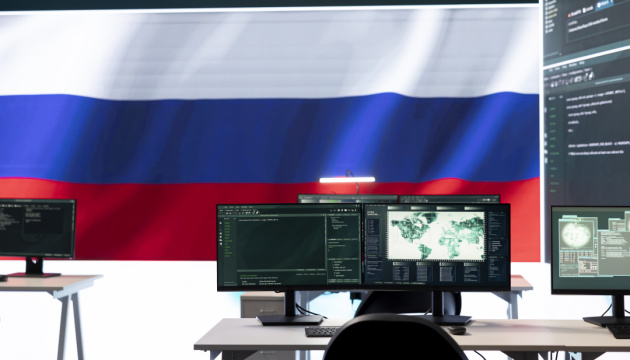Stickers with the slogan ““Russia is not my enemy” have appeared in Romania, France, and Italy.
[…]
“Russia has launched the propaganda campaign ‘Russia is not my enemy,’ which has reached Romania. Stickers with this message are appearing in cities as part of the Kremlin’s hybrid campaign aimed at creating the illusion of a ‘peaceful partnership.’ Through such tools of influence, Russia seeks to portray itself as a peacemaker, downplay its own crimes, and sow discord within European societies,” the statement by the Center for Countering Disinformation under Ukraine’s National Security and Defense Council said.
[…]
The Center added that the purpose of the campaign is to undermine citizens’ trust in the rule of law and democratic institutions in their countries, cast doubt on the Euro-Atlantic course, and discredit support for Ukraine.
[…]
Russia has significantly intensified hybrid attacks on the EU’s critical infrastructure since the start of its full-scale invasion of Ukraine.



Unfortunately for you, even Gorbachev wasn’t as pro-West as many would like to think he is. He himself expressed concerns of NATO expansion after the collapse of the Soviet Union. One would think that the leader who warmed up and made overtures to the West, would want to join NATO after, but nope.
Putin asked to be invited to join NATO, and so did Stalin, but were refused. Knowing the two, it is their mind games to test if the alliance is indeed anti-Russia, without actually intending to join.
It was only under Yeltsin at Clinton’s behest did Russia seriously considered joining, but Germany at the time refused. NATO is indeed an anti-Russia alliance. But that’s not necessarily a damning fact, because much of the Russians are not pro-West anyway and they are jingoistic. Aleksandr Solzhenitsyn, the anti-communist writer and was hailed by the West, was a jingoist and anti-West but the West deliberately put that aside. Even Putin’s late rival, Alexei Navalny, was an ultranationalist who supported the annexation of Crimea (he recanted his views in the last election just before he died, but he was probably only saying the things that the West and others wants to hear to support him against Putin). Navalny was survived by his wife but she is also similarly ultranationalist.
What a lot of people miss on the discourse is the fact that Russians are first and foremost, nationalists and then whatever comes second.